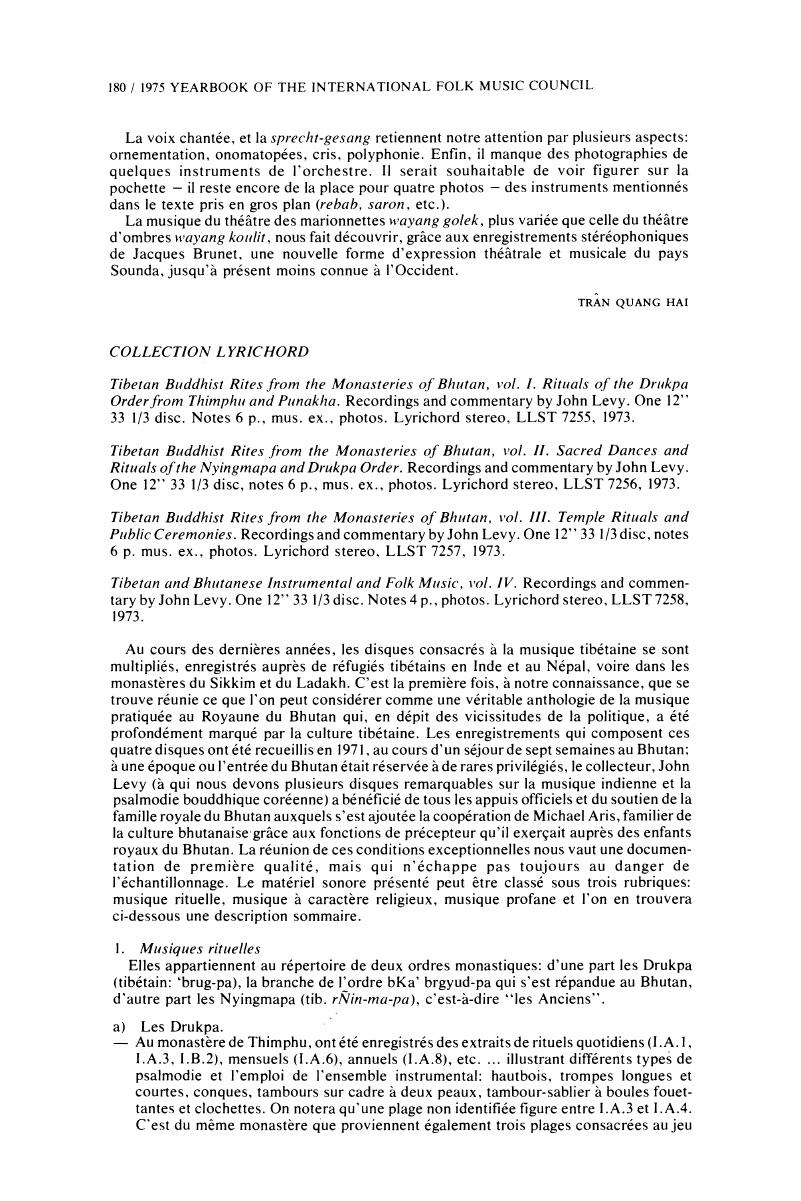No CrossRef data available.
Article contents
Collection Lyrichord - Tibetan Buddhist Rites from the Monasteries of Bhutan, vol. I. Rituals of the Drukpa Order from Thimphu and Punakha. Recordings and commentary by John Levy. One 12” 33 1/3 disc. Notes 6 p., mus. ex., photos. Lyrichord stereo, LLST 7255, 1973. - Tibetan Buddhist Rites from the Monasteries of Bhutan, vol. II. Sacred Dances and Rituals of the Nyingmapa and Drukpa Order. Recordings and commentary by John Levy. One 12” 33 1/3 disc, notes 6 p., mus. ex., photos. Lyrichord stereo, LLST 7256, 1973. - Tibetan Buddhist Rites from the Monasteries of Bhutan, vol. III. Temple Rituals and Public Ceremonies. Recordings and commentary by John Levy. One 12” 33 1/3 disc, notes 6 p. mus. ex., photos. Lyrichord stereo, LLST 7257, 1973. - Tibetan and Bhutanese Instrumental and Folk Music, vol. IV. Recordings and commentary by John Levy. One 12” 33 1/3 disc. Notes 4 p., photos. Lyrichord stereo, LLST 7258, 1973.
Published online by Cambridge University Press: 14 February 2019
Abstract

- Type
- Reviews
- Information
- Copyright
- Copyright © 1976 By the International Folk Music Council
References
Notes
1. A l'origine le dzong (tib. rjon) est un château du type forteresse où réside le responsable administratif d'une région; le territoire du Bhutan est divisé en une douzaine de dzong et l'on aurait souhaité qu'une carte détailée, permette de localiser précisément les enregistrements.Google Scholar
2. Les sokha (tib. qsol-kha) ne sont pas, comme le laisse supposer la notice, une catégorie de divinités mais une catégorie de prières.Google Scholar




